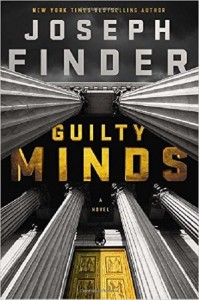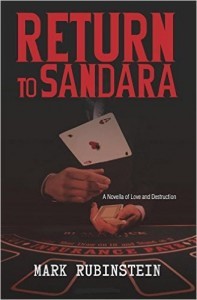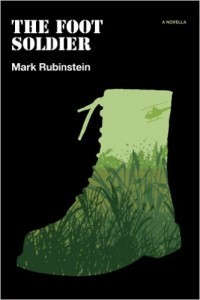Joseph Finder is the bestselling author of twelve previous novels, including The Fixer and Suspicion. His bestsellers Paranoia and Hig
 h Crimes both became major motion pictures. His awards include The Barry, Gumshoe, and The International Thriller Writers Award for his novel, Killer Instinct. His new Novel is Guilty Minds.
h Crimes both became major motion pictures. His awards include The Barry, Gumshoe, and The International Thriller Writers Award for his novel, Killer Instinct. His new Novel is Guilty Minds.
Guilty Minds, the third book in the Nick Heller series, has Nick Heller called to Washington, DC to defang a potentially explosive situation. The Chief Justice of the Supreme Court is about to be defamed by a sleazy gossip website called Slander Sheet, which publishes online dirt about celebrities and politicians. They’re about to expose the Chief Justice as having liaisons with an escort, paid for by a wealthy casino mogul. But when the call girl is murdered, the case veers into dangerous territory.
Nick Heller is a fascinating character. Tell us a bit about him.
Nick is a private spy, not a private eye; and as such, he doesn’t work divorce cases. Instead, he gets involved in high stakes cases which require his using the sophisticated methods and techniques employed by intelligence agencies.
Nick’s the son of a Wall Street tycoon who was found to be crooked and wound up in prison. His childhood of wealth and privilege was suddenly upended and became one of poverty. Nick’s familiar with the wealthy and powerful, but is not intimidated by them. In fact, he’s somewhat cynical about them. He’s got a dry sense of humor and is very loyal, but he’s stubborn. And, he’s quite streetwise.
The first lines of the novel are ‘Lies are my business. They keep me employed.’ How do these lines lead into the heart of the novel?
Lies and trouble are Nick’s business, and a lie is at the heart of Guilty Minds. The book explores the uncovering of lies, and the damaging power some lies possess because of the Internet’s extraordinary ability to disseminate “dirt” and lies.
In Guilty Minds, Nick and his assistant, Dorothy, rely heavily on technology. Has the explosion of technology been a help, hindrance, or both to thriller writers?
I think it’s a help, not a hindrance. Writers can agonize over the fact that with cell phones, no one is out of reach. In the old days, you had to get to a phone booth. I think it’s a matter of playing with the technology we have. We’ve all had cell phones that ran out of juice, or have been in dead zones. Or, we’ve lost our phones. There are great possibilities with technology.
In Guilty Minds there’s technology far exceeding the use of cell phones.
Yes, and it’s all reality-based. I talk to friends who are private investigators and intelligence operatives. I research the latest technology. If the technology is described properly and used to full advantage, a writer can create a very exciting narrative.
Guilty Minds seems to draw from actual instances of scandals involving prominent government officials. Were these events part of the inspiration for writing the novel?
Yes. I’m fascinated by websites like Gawker and TMZ. They’re irresistible. Everyone reads them. Yet, the standard of proof is very low. We’re reading no more than allegations, and people often believe what they read. I love stories about Washington scandals, such as the one about Wilber Mills and his dalliance with an Argentinian stripper, Fanny Fox. Some of the most powerful politicians have been brought down, completely derailed, by dalliances. So, a website focused on politics provides so much potential for both abuse and discovery of scandal.
This is the third book featuring Nick Heller. How has he evolved over the course of the novels?
He hasn’t. He’s the same guy he was in the first two books. I often tell my readers they don’t have to read the first two to enjoy the third one. They all function as standalones. Nick is just who he is, fully formed. He’s a character like Jack Reacher, or Chandler’s Philip Marlowe. They appear to us, full-grown and fully developed. Nick will find out things about his past, his family, but doesn’t really evolve.
Having read The Fixer and Guilty Minds, it strikes me that you seem equally at home setting a story in Washington, DC or Boston. How come?
I consider myself a Bostonian, but have spent time in Washington. The two cities have very different feelings. To write a story based in Washington, I go there to do research. But in essence, I’m quite familiar with both cities.
Do you ever read your earlier novels? If so, how do they strike you now?
I enjoy looking back over what I’ve done, and those books represent a sort of photograph of where I was at that point in my career. Some of my earlier books are international conspiracy novels, and although I still write conspiracy novels, I don’t do international thrillers any longer.
Now, I’m interested in different things. We grow and evolve as writers. Looking back on some of the earlier books, I have mixed feelings about them, but they were the best I could do at that time.
Even today when I re-read a book shortly after it’s been published, I usually find something or other I would have done differently. In fact, with every book, you should be more demanding of yourself. If we’re not getting better at our craft, something is wrong. Actually, that can make writing new novels harder. Because our critical faculties are more highly developed, we become less tolerant of mistakes.
Do you have a favorite among all your own novels?
I have a couple. One is Extraordinary Powers, the novel that did the worst in the marketplace. I’ve always felt a connection to that book and have been very protective of it. It’s quite different from the rest of my fiction, and involves mind-reading. The other is Paranoia, my first New York Times hardcover bestseller. It was a breakthrough novel in ways for me, and was a novel that was as close to my real voice as possible. I appreciate different things about each book.
Who are the authors you read these days?
There are many. I read a lot but try not to read when I’m working full-blast on a novel. I read Nelson DeMille, Harlan Coben, Lee Child, Chris Pavone, Lisa Gardner, and John Grisham, among others. There’s really fine writing being done in the thriller genre.
If you could read and experience one book again as though reading it for the first time, which would it be?
It would probably be A Wrinkle in Time by Madeleine L’Engle. I read it as a kid and it blew me away. E. L. Doctorow’s Ragtime would be another, along with William Styron’s Sophie’s Choice. These were books in which I was completely immersed.
What’s coming next from Joseph Finder?
A standalone is coming next. I love writing both the Nick Heller books and the standalones. You can do different kinds of stories with standalones—ones where the protagonist’s life is turned upside down. You can’t do that in a series novel because Nick Heller has to survive each book. But, returning to a Nick Heller book feels like I’m coming back to an old friend.
Congratulations on writing Guilty Minds, a high-octane thriller melding mystery, murder, politics, and the awesome power of technology in our hyper-connected world.
Mark Rubinstein’s latest novel The Lovers’ Tango, won the 2016 Benjamin Franklin Award Gold Medal in Popular Fiction





 I’m often asked why I write crime-thriller novels. Sometimes, I think the answer is easy: I love to read them, so I write them, too.
I’m often asked why I write crime-thriller novels. Sometimes, I think the answer is easy: I love to read them, so I write them, too. Coming November 3rd, “Return to Sandara” When two brothers, Luke, two years out of college, and Gabe, entering his last year of college, go to Spain’s Costa Brava for the summer, they anticipate sun, surf and women. They have no idea of what awaits them. The world is a dangerous and unpredictable place.
Coming November 3rd, “Return to Sandara” When two brothers, Luke, two years out of college, and Gabe, entering his last year of college, go to Spain’s Costa Brava for the summer, they anticipate sun, surf and women. They have no idea of what awaits them. The world is a dangerous and unpredictable place. Kelley Armstrong has published twenty-one fantasy novels, thirteen of which have been part of her Women of the Otherworld series. Her novels blend suspense and the supernatural. Last year, she began The Cainsville series with its first novel, Omens. The second in this series is Visions,featuring Olivia Taylor-Jones, the daughter of alleged notorious serial killers.
Kelley Armstrong has published twenty-one fantasy novels, thirteen of which have been part of her Women of the Otherworld series. Her novels blend suspense and the supernatural. Last year, she began The Cainsville series with its first novel, Omens. The second in this series is Visions,featuring Olivia Taylor-Jones, the daughter of alleged notorious serial killers. With the release of her twenty-first thriller, The Perfect Stranger, N Y Times bestselling suspense novelist Wendy Corsi Staub will have published more than eighty novels in various genres. Wendy has twice been nominated for the Simon and Schuster Mary Higgins Clark Award; and is the recipient of the Romance Writers of America Rita Award; the RT Book Reviews Award for Career Achievement in Suspense; the RWA/NYC Golden Apple for Lifetime Achievement; and many other honors. Wendy’s titles are regularly selected as features for Mystery Guild, Literary Guild, Doubleday Book Club, and Rhapsody Book Club.
With the release of her twenty-first thriller, The Perfect Stranger, N Y Times bestselling suspense novelist Wendy Corsi Staub will have published more than eighty novels in various genres. Wendy has twice been nominated for the Simon and Schuster Mary Higgins Clark Award; and is the recipient of the Romance Writers of America Rita Award; the RT Book Reviews Award for Career Achievement in Suspense; the RWA/NYC Golden Apple for Lifetime Achievement; and many other honors. Wendy’s titles are regularly selected as features for Mystery Guild, Literary Guild, Doubleday Book Club, and Rhapsody Book Club. Just received the official certificate from IBPA informing me that “The Foot Soldier” won the Silver Award in the category of Popular Fiction. It’s an honor.
Just received the official certificate from IBPA informing me that “The Foot Soldier” won the Silver Award in the category of Popular Fiction. It’s an honor.